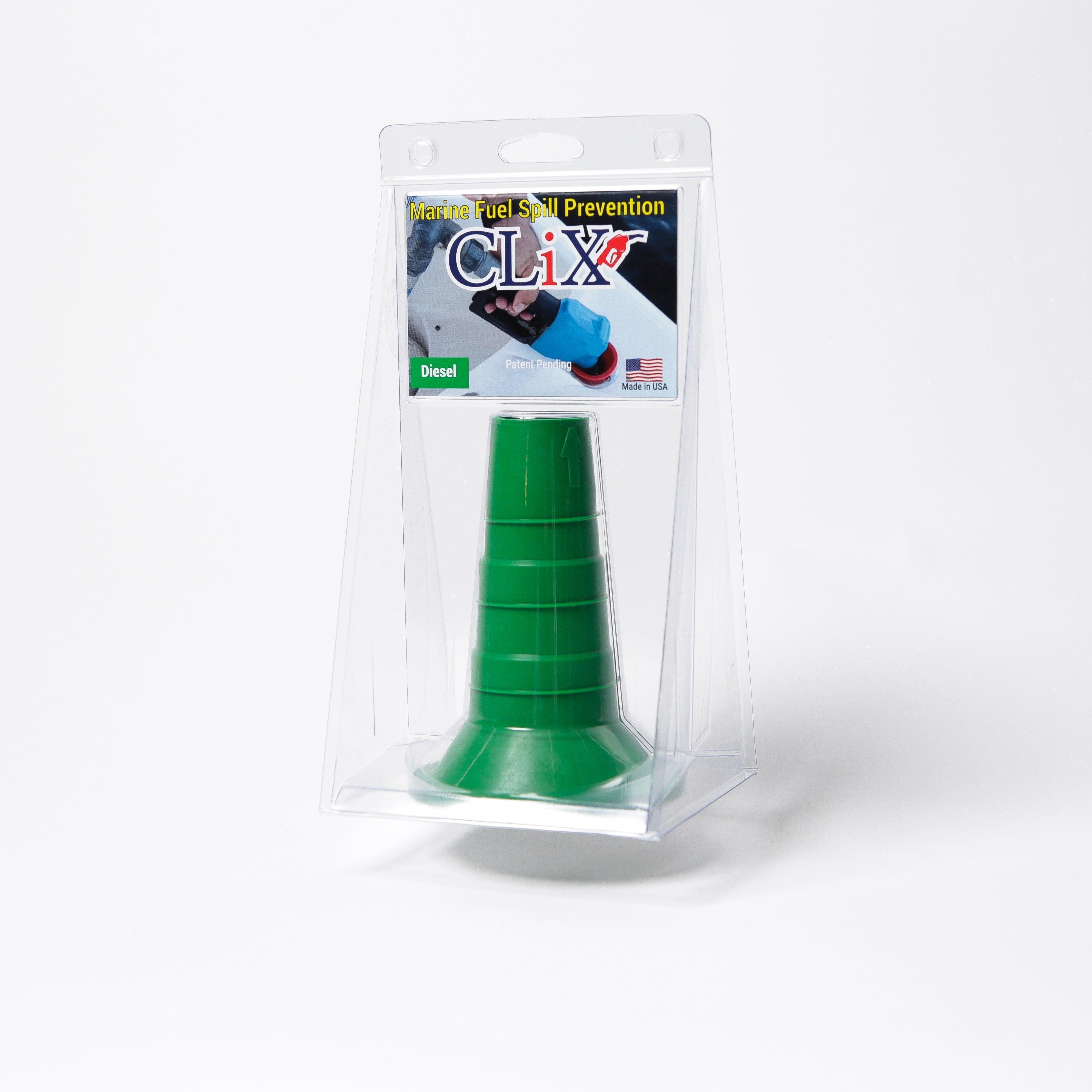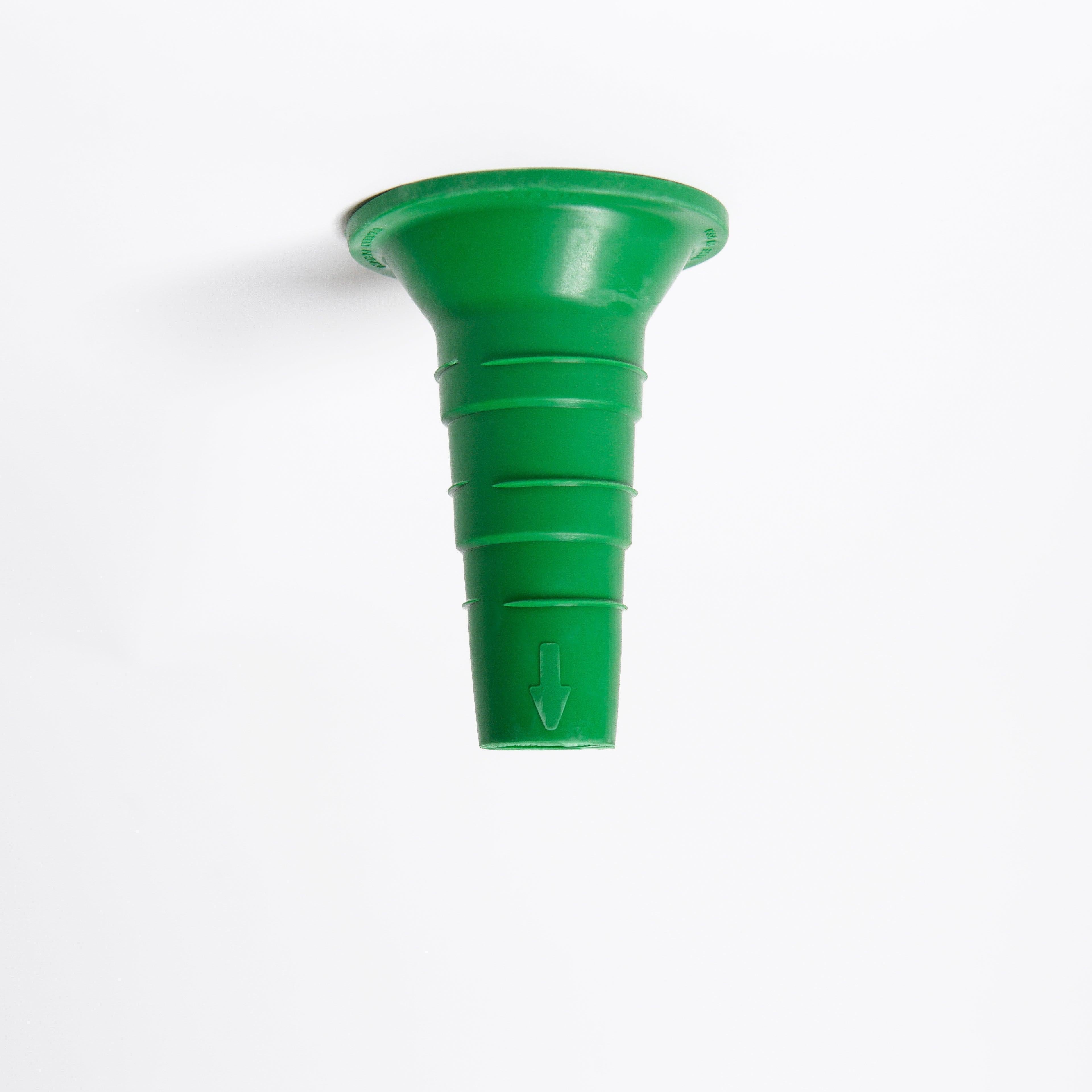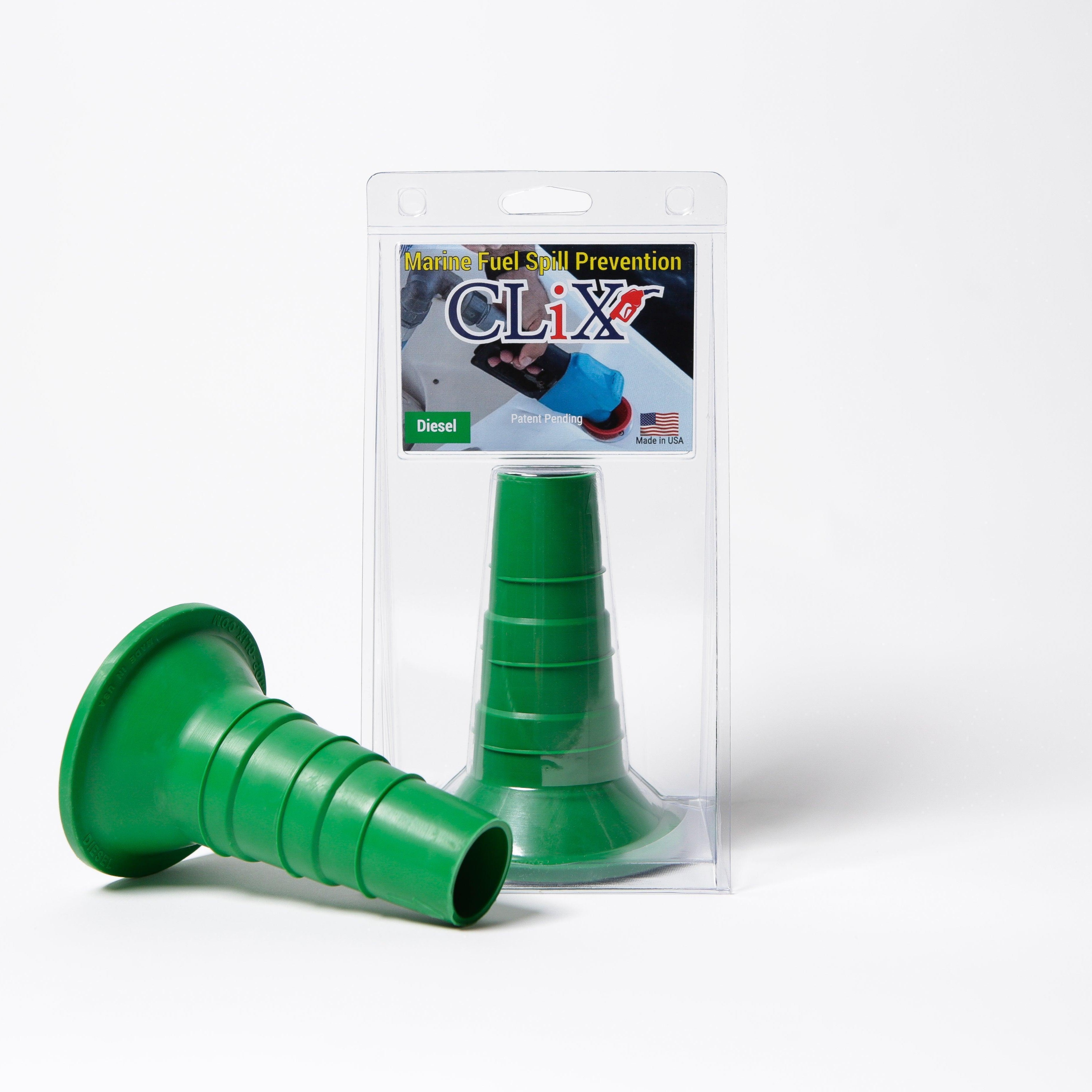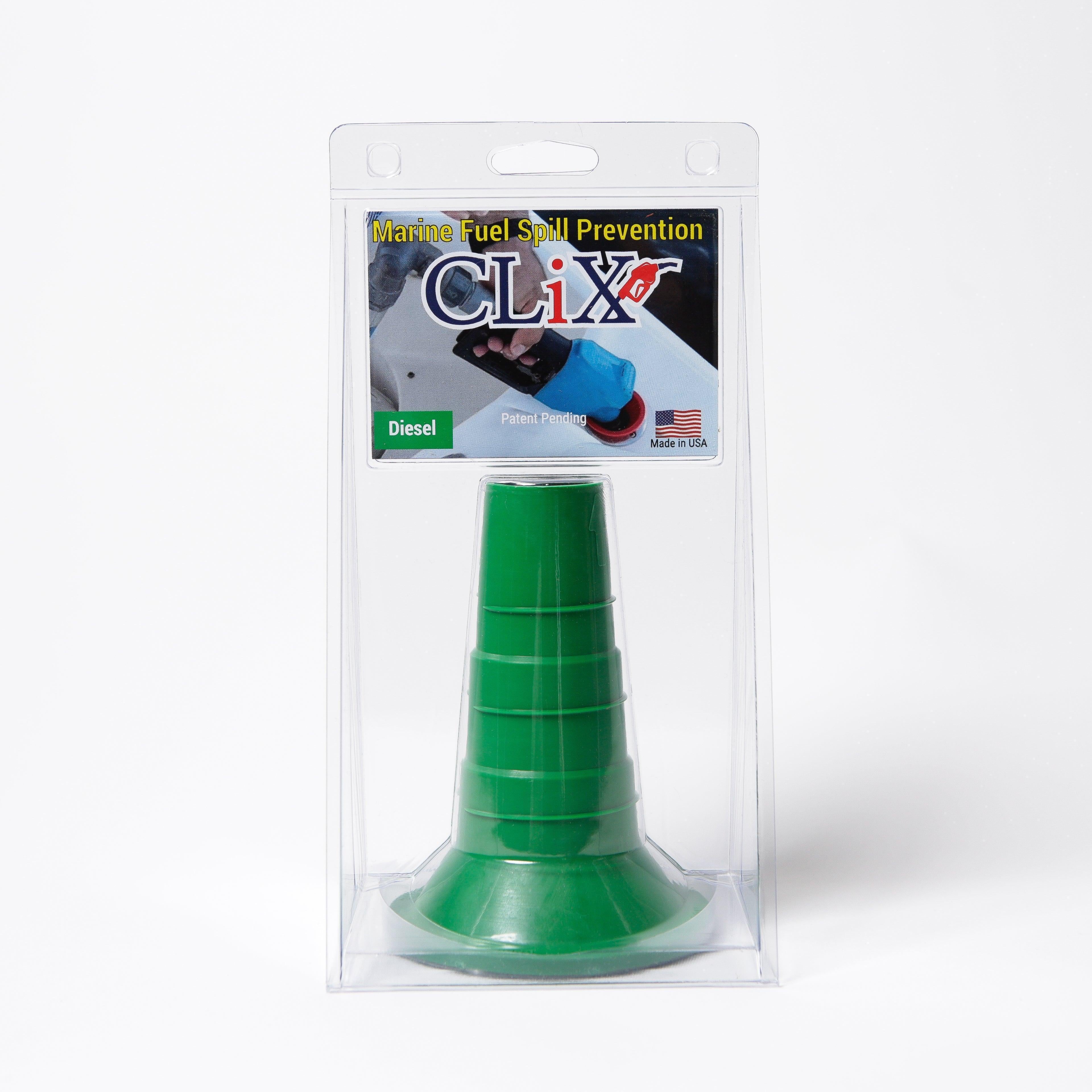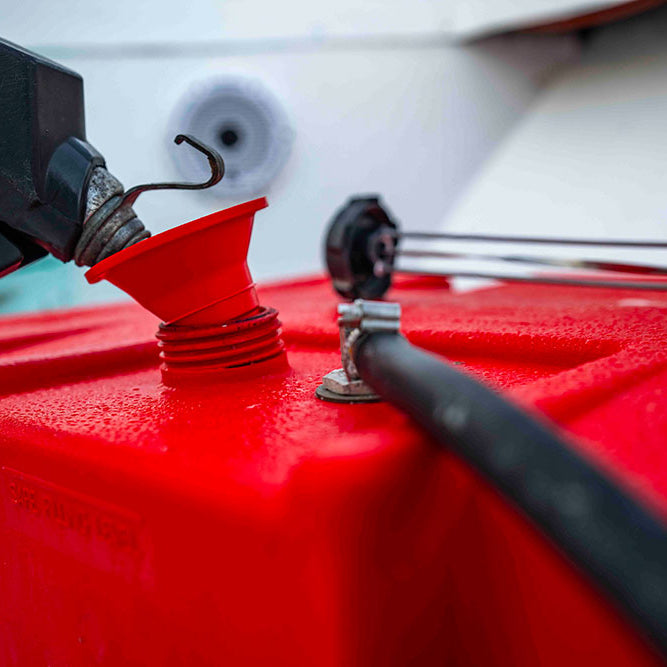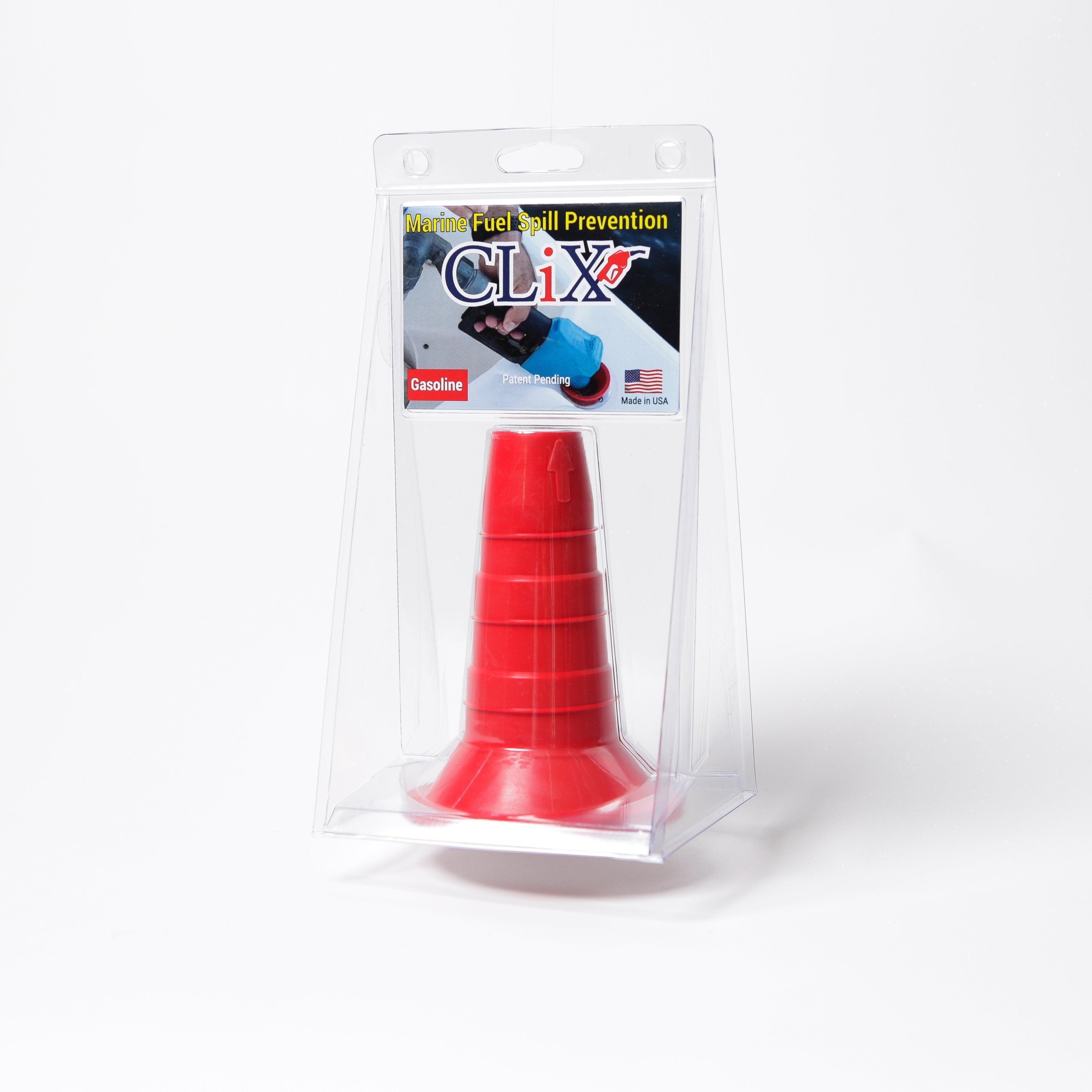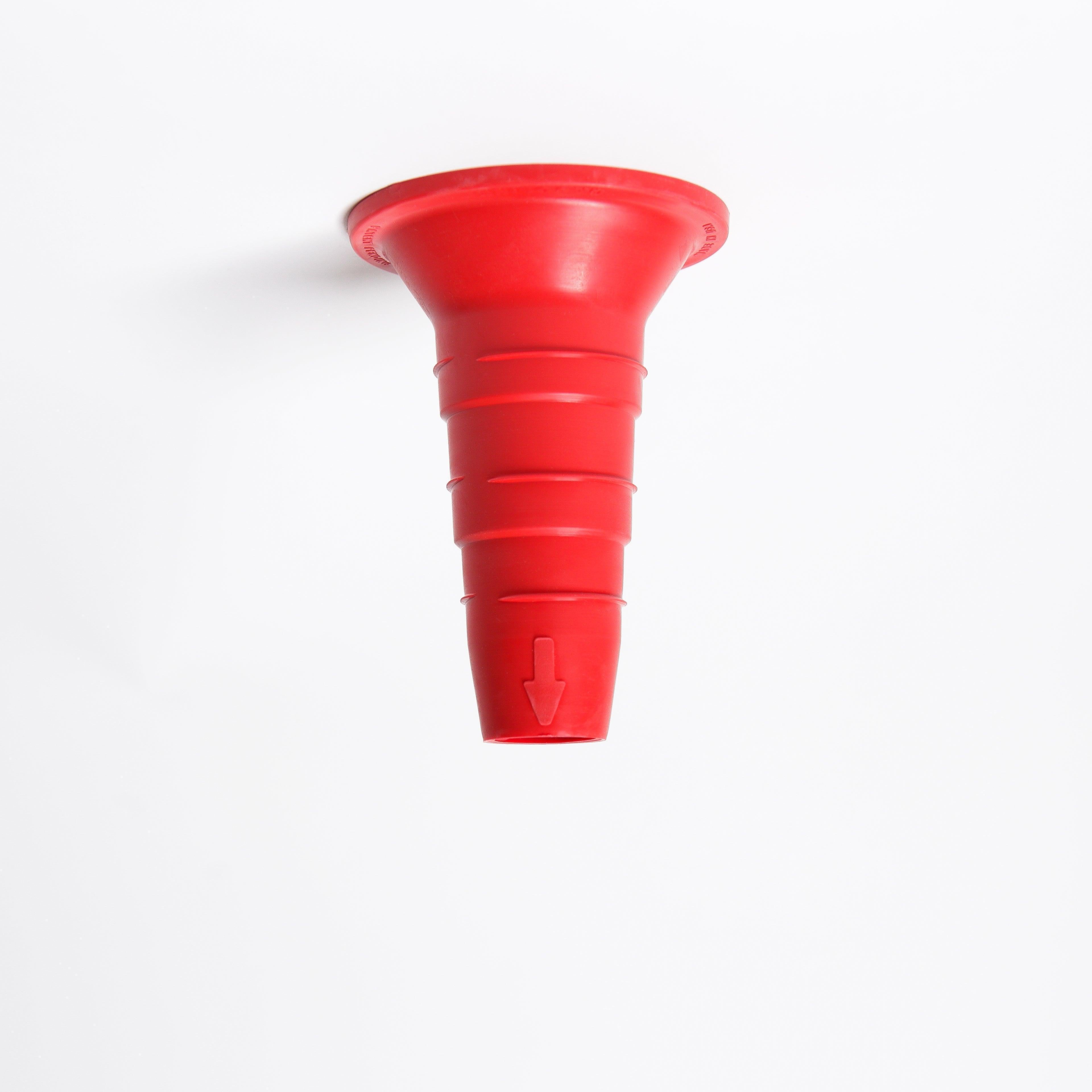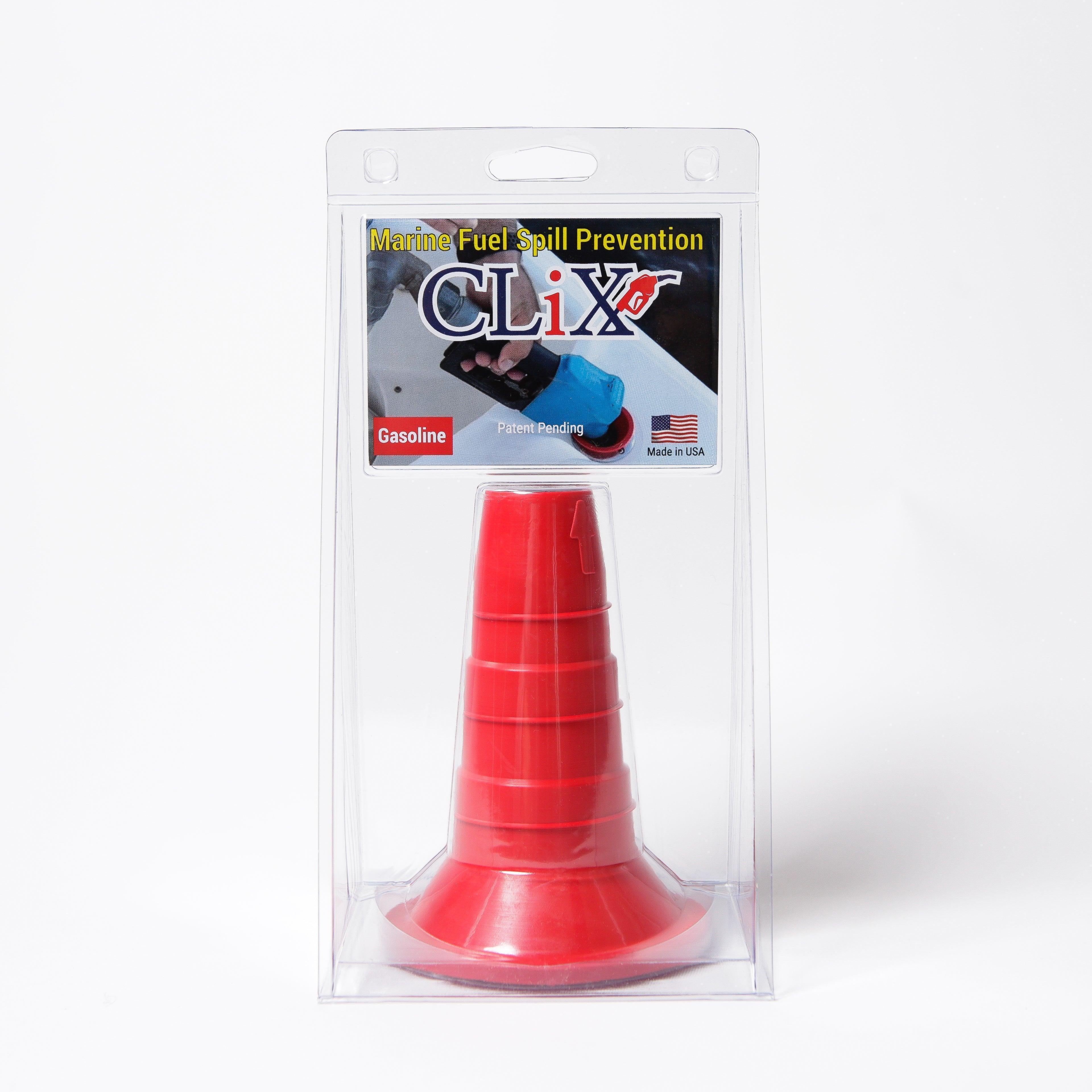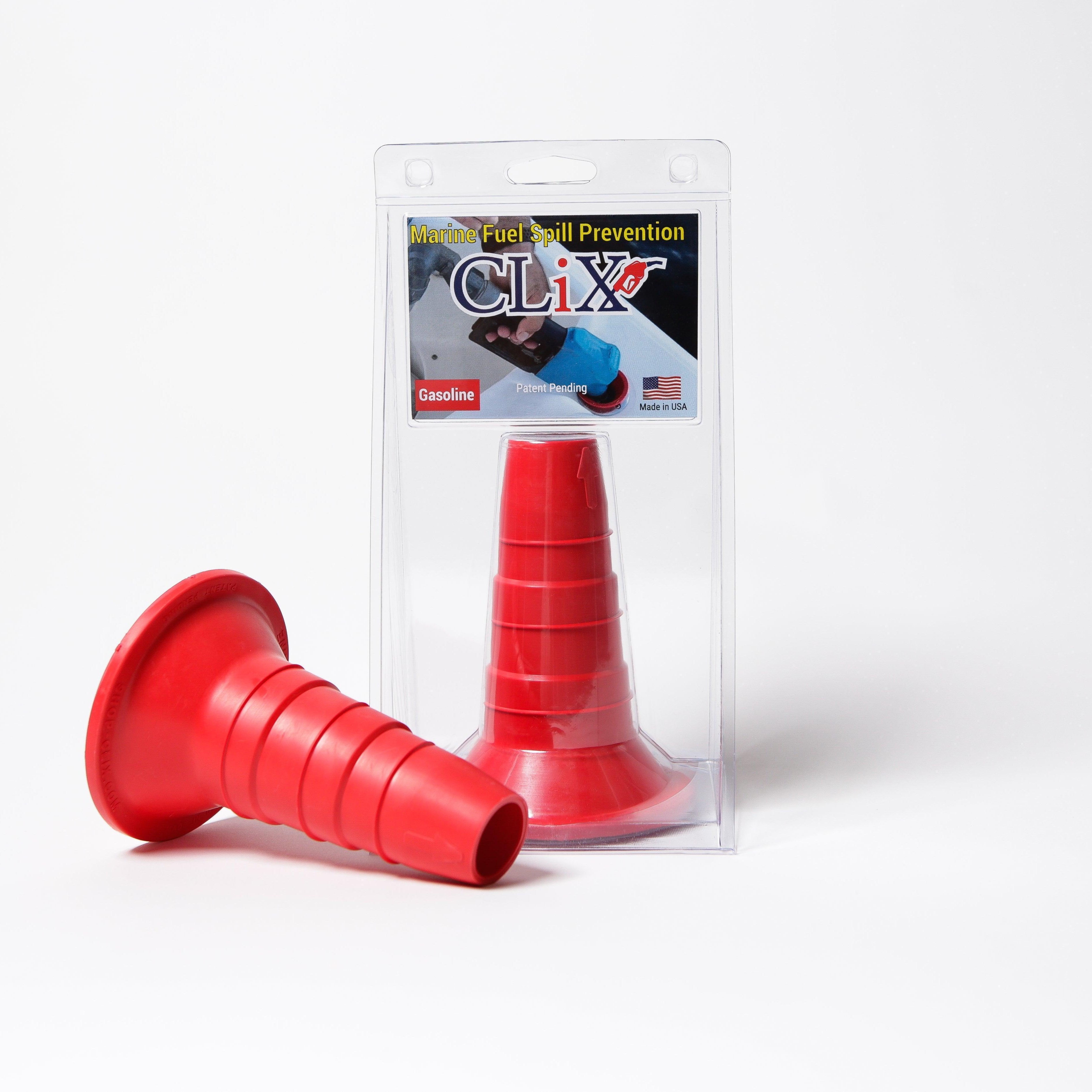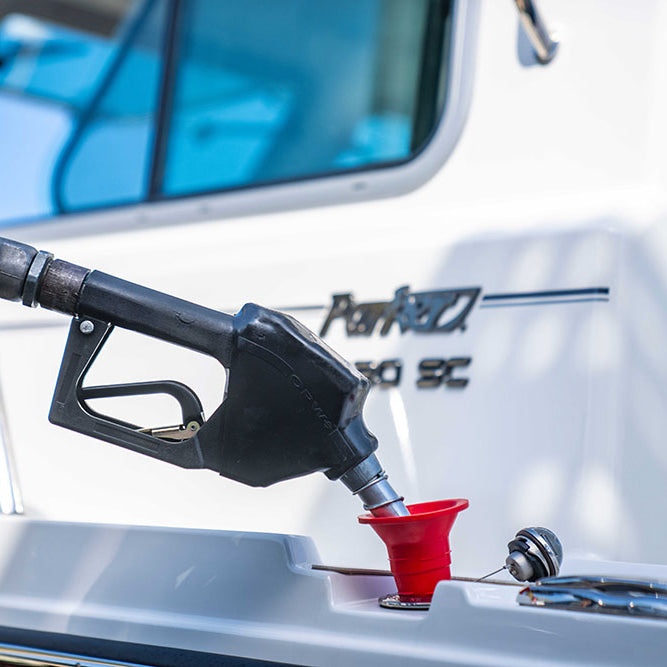Think of your boat's fuel system like its circulatory system and the fuel itself as its lifeblood. If that lifeblood gets contaminated or breaks down, the whole system suffers. That's exactly where fuel additives come in—they're specialized chemical treatments that protect your engine and keep your fuel healthy.
For boaters, additives aren't just a "nice-to-have." They are a core part of keeping your engine running smoothly, especially given the tough conditions that modern fuels have to endure.
Why Your Boat Needs Fuel Additives
Let's be honest, the fuel you put in your boat isn't what it used to be. Today's fuels, particularly those with ethanol, can create a pretty hostile environment inside your tank and engine. This makes fuel additives for boats less of an upgrade and more of a necessity for good preventative maintenance.
Here’s a fact that surprises many boat owners: untreated fuel starts to go bad in as little as 30-60 days. As it breaks down through oxidation, it forms nasty gums and varnish. This sludge clogs up fuel lines, injectors, and filters, which is a direct path to rough starts, sputtering performance, and sometimes, complete engine failure.
The Unseen Threats in Your Fuel Tank
Your boat faces a set of fuel challenges that your car almost never does. The biggest enemy? Time. Boats often sit idle for weeks or months, and that's when the real trouble begins.
- Fuel Breakdown During Storage: When your boat is laid up for the winter, or even just sitting at the dock for a few weeks, the fuel starts to decay. A good fuel stabilizer acts like a preservative, keeping the fuel chemistry intact and preventing those harmful deposits from forming.
- Water Contamination: It's a boat—it lives in a wet environment. Water is always trying to get into your fuel tank, whether through a leaky seal or just simple condensation. This moisture causes rust and corrosion, and with ethanol fuels, it creates an even bigger problem.
- The Damaging Effects of Ethanol: Ethanol is a double-edged sword. It's also hygroscopic, which is a fancy way of saying it loves to absorb water. Once it soaks up enough moisture from the air in your tank, it can't hold anymore and separates from the gasoline. This process, called phase separation, leaves a corrosive, water-logged ethanol mixture at the bottom of your tank that can destroy an engine.
- Gunk and Debris Buildup: Over time, all sorts of junk can build up in your tank, from simple sediment to biological growth (especially algae in diesel fuel). The detergents found in many additives act like a cleaning crew, dissolving this gunk and keeping your entire fuel system clear.
The bottom line is that fuel sitting in your boat's tank is in a constant battle against moisture, oxidation, and chemical instability. Without the right additives, the fuel itself becomes the primary source of engine problems.
This isn't some niche concern for weekend boaters. The entire marine industry is built on reliable fuel management. In fact, the global demand for effective fuel treatments is massive. The broader fuel additives market, which includes marine use, was valued at USD 9.24 billion and is expected to climb to over USD 14.51 billion by 2032. You can dig into these trends in various market research reports.
By using additives in your own boat, you're just following the same best practices that large commercial fleets use to protect their multi-million dollar investments. It's all about ensuring reliability and efficiency on the water.
Common Fuel Problems and Additive Solutions
Most fuel-related headaches boaters experience can be traced back to a few common culprits. Luckily, for every problem, there's an additive specifically designed to fix it. This table breaks down the most frequent issues and the right type of additive to reach for.
| Common Problem | Primary Cause | Additive Solution |
|---|---|---|
| Engine Won't Start After Storage | Fuel oxidation and breakdown creating gum/varnish. | Fuel Stabilizer |
| Sputtering or Stalling Engine | Water in the fuel; phase separation in ethanol blends. | Water Remover / Ethanol Treatment |
| Reduced Power and Fuel Economy | Clogged injectors and carbon buildup on valves. | Fuel System Cleaner / Detergent |
| Knocking or Pinging Sounds | Low octane in old or poor-quality gasoline. | Octane Booster |
| Black Smoke from Diesel Engine | Incomplete combustion; low cetane number. | Cetane Booster / Diesel Injector Cleaner |
Think of this as your quick-reference guide. If your engine is acting up, a quick look here can often point you toward the additive that will get you back to smooth sailing.
The Different Types of Boat Fuel Additives
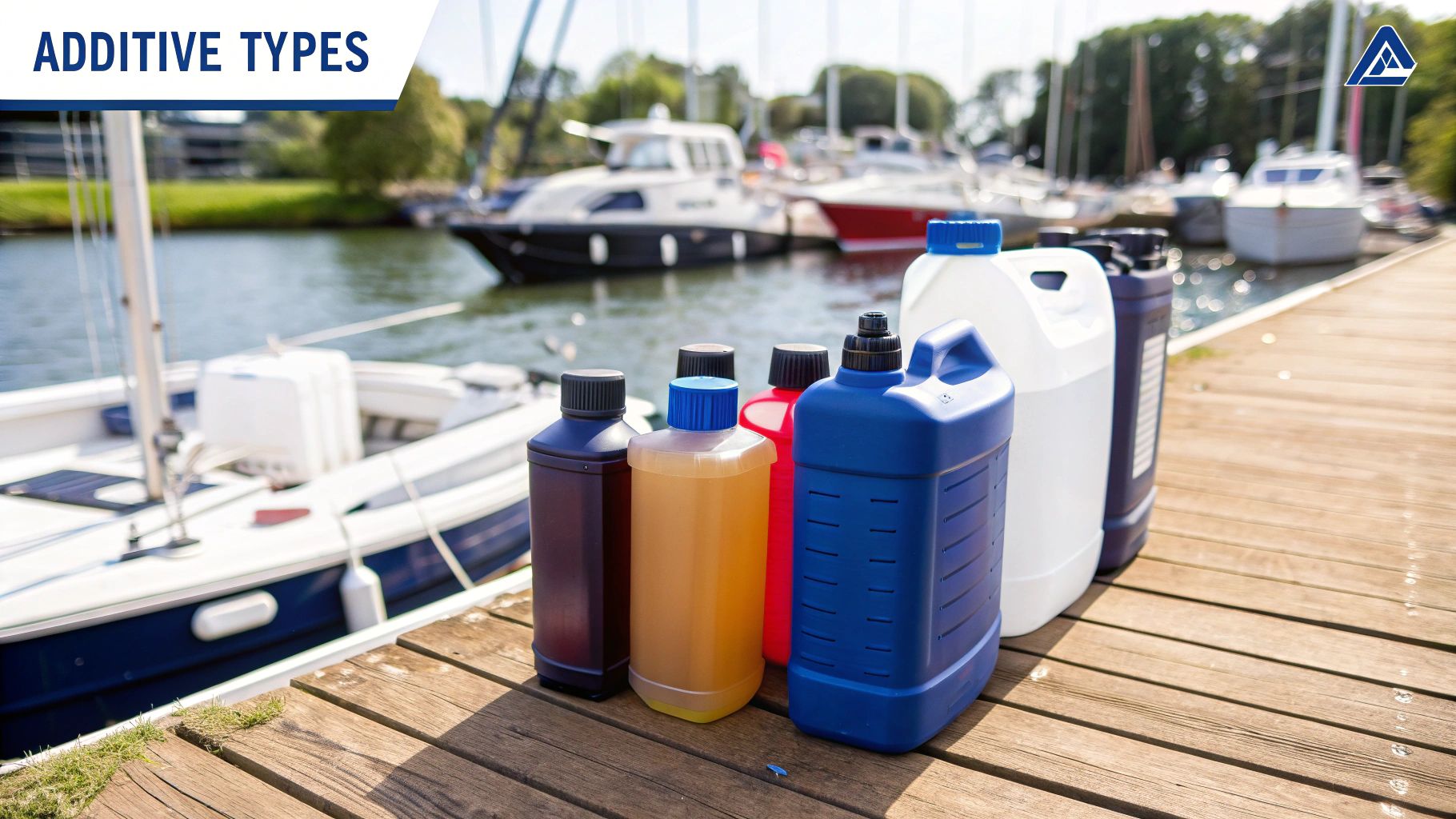
Walking down the fuel additive aisle can feel a bit overwhelming. You’re faced with a wall of different bottles, all promising to work magic on your engine. But which one do you actually need?
Think of it like a mechanic's toolbox. You wouldn't use a wrench to hammer a nail. In the same way, the additive you need for winter storage is completely different from one designed to clean out a gunked-up fuel system. Let’s break down the main types so you can grab the right tool for the job.
Fuel Stabilizers For Long-Term Storage
So, you’re putting the boat away for the season. While it’s sitting, the fuel in the tank starts to break down. This process, known as oxidation, is a slow-motion reaction with oxygen that creates sticky gums and varnish that can wreak havoc on your engine.
A fuel stabilizer acts like a preservative for your gasoline, stopping that chemical decay before it starts.
- No More Gunk: By halting oxidation, a stabilizer prevents the sludge and varnish that clog up tiny, critical passages in your fuel injectors and carburetor.
- Easy Starts Next Season: When spring finally arrives, your fuel will be fresh and potent, ready to fire up the engine without a single sputter.
Skipping this step is a huge gamble. You could come back to a tank of stale, useless fuel and a hefty repair bill before you even hit the water.
Key Insight: Untreated gasoline can start going bad in as little as 30-60 days. A good stabilizer keeps it fresh for a year or even longer, making it an absolute must for winterization or any long lay-up.
Ethanol Treatments and Water Removers
Today's E10 gasoline (10% ethanol) poses a unique problem for boats. Ethanol is hygroscopic, which is a fancy way of saying it loves to soak up water right out of the humid marine air.
Once the ethanol absorbs too much moisture, it can’t stay mixed with the gasoline. This triggers phase separation, where a nasty, corrosive mix of ethanol and water settles at the bottom of your tank—right where your fuel pickup sits. This stuff can destroy an engine.
This is where specialized ethanol treatments come in. They do two critical things:
- They help the ethanol and gasoline stay properly blended, even when some moisture is present.
- They allow tiny amounts of water to be safely burned away with the fuel during normal combustion, keeping your tank dry and preventing that dreaded phase separation.
Keeping water out of your fuel is one of the most important parts of boat maintenance. For more on this, our boat fuel tank guide offers excellent tips for safety and maintenance that pair perfectly with using these additives.
Corrosion Inhibitors For Fighting Rust
Your boat's fuel tank and lines are in a constant battle with moisture, making rust and corrosion a relentless enemy. This is why corrosion inhibitors are a non-negotiable ingredient in any good marine fuel additive.
These inhibitors work by coating every metal surface in your fuel system with a microscopic, protective film. It’s an invisible shield that physically blocks water from touching the metal, stopping rust in its tracks. This protects everything from the tank itself to the finely-machined components inside your fuel injectors.
Fuel Injector and System Cleaners
Over time, carbon deposits and other gunk will inevitably build up inside your engine—on fuel injectors, intake valves, and in the combustion chamber. This buildup chokes off fuel flow and messes up the fine mist your injectors are supposed to create.
When that happens, you’ll feel it.
- The boat feels sluggish and has lost its punch.
- You’re burning through fuel faster than you used to.
- The engine idles rough or even stalls out.
A good fuel system cleaner is like a power wash for your engine's internals. It uses potent detergents—look for ingredients like polyetheramine (PEA)—to dissolve those baked-on deposits and flush them out. Using one regularly is the key to keeping your engine running strong and efficiently.
The Real-World Benefits of Using Fuel Additives
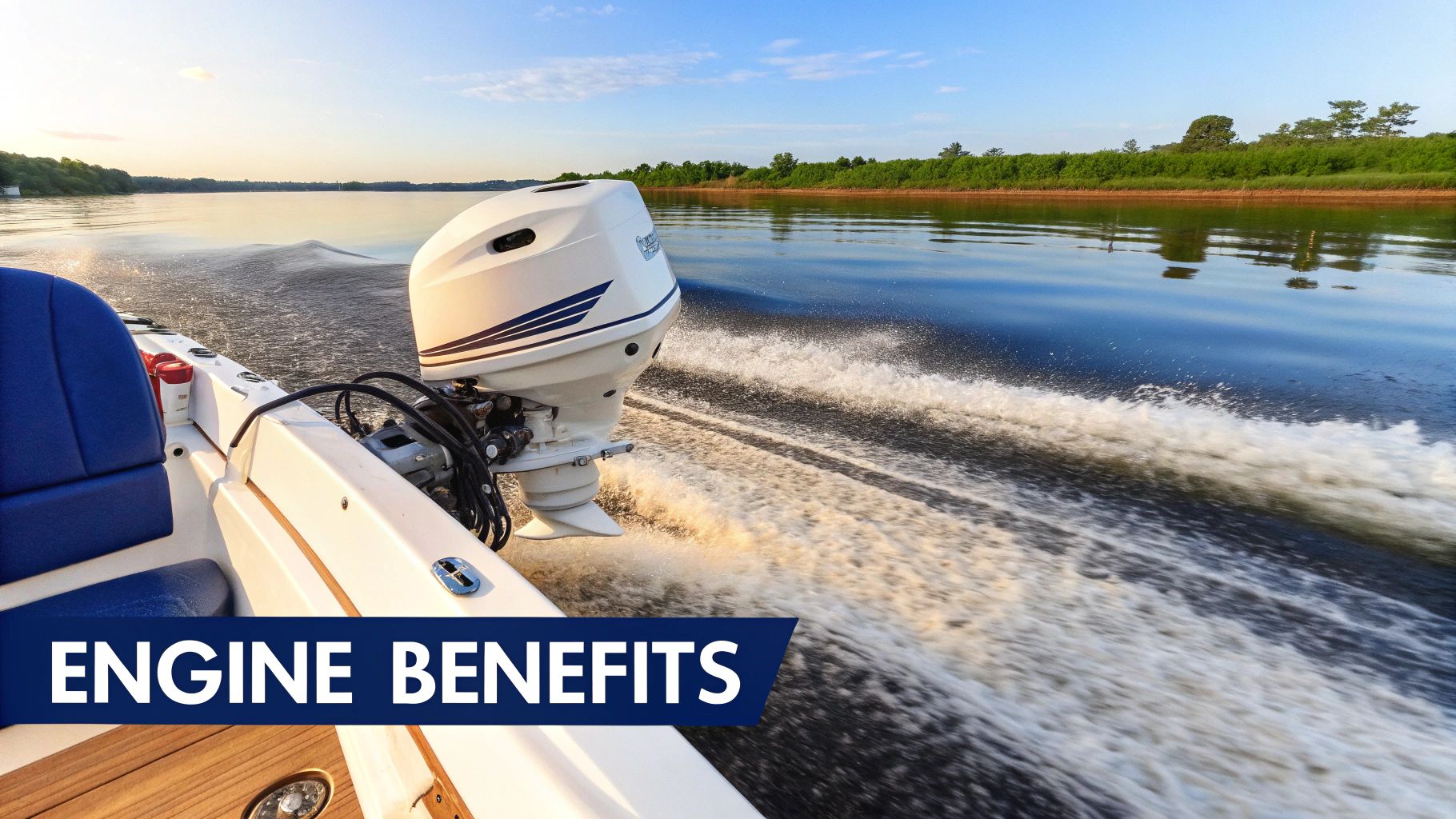
It’s one thing to read about what different additives do, but what really matters is seeing the results for yourself. Using fuel additives for boats isn’t just about dodging potential problems—it’s about making your time on the water better, plain and simple. We’re not talking about tiny, barely-there tweaks. These are real, noticeable improvements you’ll feel in your boat's performance and see in your wallet.
I’ve known countless boaters like Mark, who used to hold his breath every spring, just hoping his engine would start without coughing and sputtering. After one too many weekends wrestling with clogged injectors, he started a new habit: adding a quality multi-function additive every time he filled up.
The next season? His boat fired right up. It purred at the dock and had a lot more punch when he opened it up on the water. That small change turned his weekends from a frustrating gamble into the relaxing escape they were supposed to be. That's the difference consistent fuel treatment makes.
Unlock Better Performance and Fuel Economy
One of the first things you'll notice is just how much happier your engine sounds and feels. When your fuel injectors and valves are clean, your engine can finally breathe and burn fuel the way its designers intended.
- Smoother Engine Operation: Additives work by dissolving the carbon gunk that builds up over time. This restores the fine, cone-shaped fuel spray from your injectors, which gets rid of the rough idling and stumbling that so many untreated engines suffer from.
- Improved Fuel Efficiency: A clean engine is an efficient one. When your fuel system is clear, you get better combustion, meaning more power from every drop of fuel. Over a season, that translates directly to less money spent at the fuel dock.
This push for cleaner, more efficient engines isn't just a boater thing. The entire maritime industry is moving in this direction. The global market for marine fuel additives was valued at USD 6.8 billion in 2023 and is expected to climb to USD 11.6 billion by 2032 as stricter environmental rules take hold. If you're curious about the industry-wide trends, you can explore more insights on the marine fuel additives market.
A Boater's Bottom Line: The math is pretty straightforward. A good multi-function additive might cost a few extra dollars per tank, but the money you save from better fuel economy and avoiding expensive repairs can easily add up to hundreds of dollars a year.
Achieve Long-Term Engine Protection and Reliability
Beyond the immediate boost in performance, the real prize is long-term protection. Think of fuel additives as an insurance policy for your engine, protecting it from the inside out.
Using a quality marine formula consistently builds a shield against the two biggest enemies in any fuel system: water and time. Corrosion inhibitors put a protective film on metal parts to stop rust before it starts. At the same time, stabilizers keep the fuel from breaking down into the gummy varnish that clogs everything up.
All this leads to what every boater truly wants: unwavering reliability. It's the peace of mind knowing your engine will start when you turn the key and won't leave you adrift miles from shore. You can't put a price on that kind of confidence.
How to Choose the Right Additive for Your Boat
Walking down the marine supply aisle, the wall of fuel additives can be overwhelming. With so many options, how do you pick the right one? It can feel like guesswork, but the secret isn't about finding a magic brand. It's about matching the product to your boat, your fuel, and your habits.
Think of it like being a doctor for your boat’s engine. You wouldn't just grab a random bottle off the pharmacy shelf; you'd diagnose the problem first. A brand-new boat used for weekly fishing trips has totally different needs than a classic cruiser that sits idle for months. By asking a few simple questions, you can cut through the noise and find exactly what your engine needs.
Match the Additive to Your Engine and Fuel
First things first: what kind of engine are you running? The demands of a modern four-stroke outboard are worlds apart from an older two-stroke or a brawny marine diesel. This is your starting point.
- For 2-Stroke and 4-Stroke Gasoline Engines: The public enemy number one is almost always ethanol-blended fuel (E10). Your top priority should be an additive with strong ethanol protection to stop water from being absorbed and prevent phase separation. A good corrosion inhibitor is just as crucial.
- For Diesel Engines: Diesels have their own set of problems, especially algae and other microbial critters that love to grow in fuel tanks, particularly in humid climates. A solid diesel additive must include a biocide to kill that gunk and a cetane booster to help the engine burn fuel cleanly and cut down on that classic black smoke.
What you're putting in the tank matters just as much. If you're lucky enough to find ethanol-free (E0) gas, your main worry isn't phase separation anymore. It’s about keeping that fuel fresh. In that case, a high-quality fuel stabilizer becomes your most important tool to stop the fuel from breaking down into varnish and sludge during storage.
A lot of boaters make the mistake of just grabbing a generic automotive additive. Don't do it. Marine-specific formulas are built to handle way more water exposure and the unique beating that a boating environment delivers. They’re simply made for a tougher job.
Consider Your Boating Habits and Environment
Next, think about how you actually use your boat. Are you out on the water every weekend, or does your boat spend long stretches hibernating in the off-season?
- Frequent Use: If you’re a regular, your main goal is keeping things running clean and smooth. A multi-function additive with a strong detergent package, especially one containing PEA (polyetheramine), is perfect for preventing carbon from building up on your injectors and valves.
- Long-Term Storage: For any boat sitting for more than a month, a top-tier fuel stabilizer is an absolute must. It’s the only thing that will prevent fuel from oxidizing and turning into the nasty, system-clogging goo that leads to hard starts and expensive repairs.
This decision tree shows how your engine, its condition, and your boating environment guide your choice.
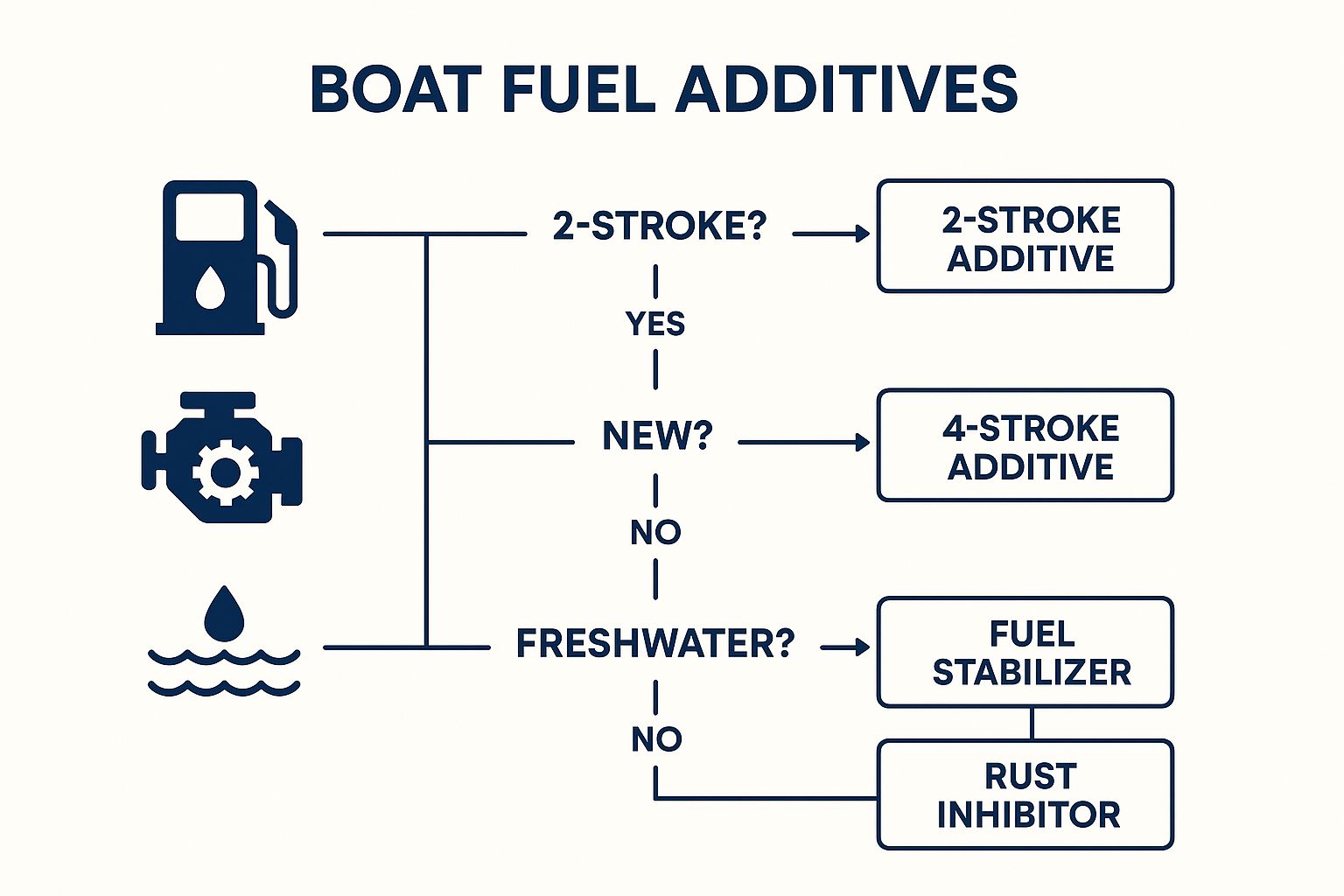
As you can see, an older 4-stroke engine battling saltwater needs a completely different defense strategy than a new 2-stroke used in a freshwater lake. This is why a one-size-fits-all approach just doesn't work.
To make this even easier, here's a quick guide to help you pinpoint what you need based on your situation.
Additive Selection Guide by Boat Type and Usage
This table simplifies the process. Find the scenario that best describes you to see which additives should be at the top of your list.
| Scenario | Primary Additive Needed | Secondary Additive to Consider |
|---|---|---|
| New 4-Stroke, Frequent Use (E10 Fuel) | Ethanol Protection & Stabilizer | Detergent (PEA) |
| Older 2-Stroke, Frequent Use (E10 Fuel) | Ethanol Protection & Stabilizer | Carbon Guard / Ring Cleaner |
| Any Gas Engine, Long-Term Storage | High-Concentration Fuel Stabilizer | Corrosion Inhibitor |
| Marine Diesel, Frequent Use | Biocide & Cetane Booster | Water Separator / Demulsifier |
| Marine Diesel, Long-Term Storage | Biocide & Diesel Stabilizer | Cetane Booster |
| Performance Boat, High-RPM Use | Octane Booster & Detergent (PEA) | Stabilizer |
| Using Ethanol-Free (E0) Gas | Fuel Stabilizer | Corrosion Inhibitor |
Remember, this is about prioritizing. The "Primary" column is what you absolutely should be using, while the "Secondary" is a smart addition for extra protection and performance.
All-In-One vs. Specialized Formulas
So, the final question is whether to grab one bottle that does everything or buy a few specific products.
- All-In-One (Multi-Function) Additives: Honestly, for most of us recreational boaters, a high-quality multi-function additive is the simplest and best route. These products are formulated to stabilize fuel, fight corrosion, manage water, and clean the system all at once. They offer great all-around protection for everyday use.
- Specialized Additives: These are your heavy hitters for specific problems. If you've got a badly clogged fuel system or you know you have water in your tank, a concentrated, specialized cleaner or water remover is the right tool to fix it. You can dive deeper into how all these parts work together in our guide to the complete boat fuel system.
In the end, prevention is always the best strategy. Using a good all-in-one additive every time you fill up will keep most problems from ever starting. Just keep a bottle of a specialized cleaner on hand, so you're ready if trouble ever does strike.
Best Practices for Using Fuel Additives
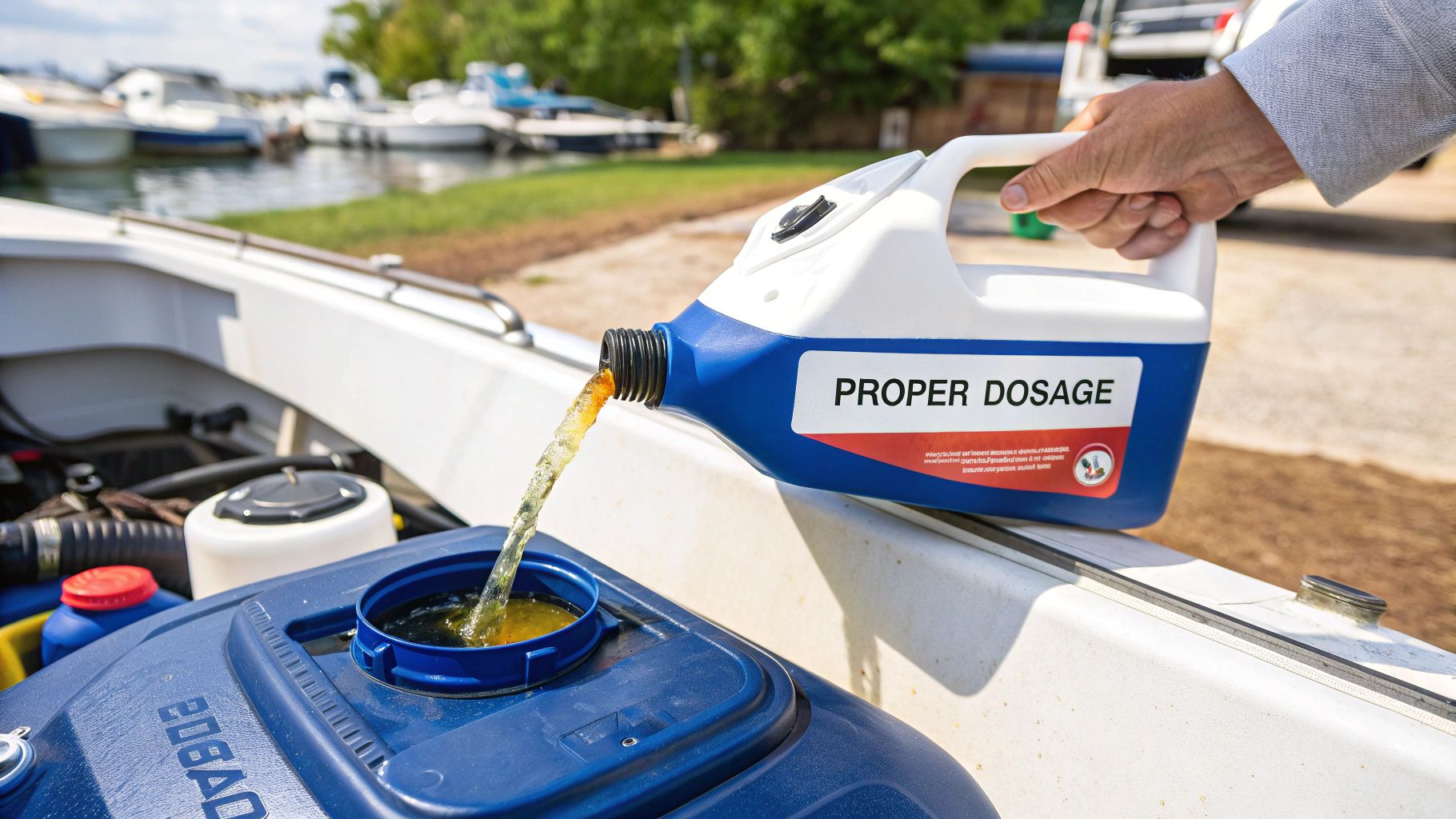
Just picking up a bottle of the right fuel additives for boats doesn’t automatically protect your engine. To really get your money's worth and safeguard your investment, you have to use them the right way. It's not complicated, but nailing a few simple details is the difference between an additive that works and one that’s just along for the ride.
Think of it like mixing a drink—the order and measurements matter. You wouldn't just toss ingredients into a glass randomly and expect a perfect result. Let's walk through the simple habits that turn a good product into great engine protection.
Get the Dosage and Timing Right
Here’s the single most important tip: add the treatment to your tank before you start fueling. Pouring the correct amount into a nearly empty tank first means the incoming rush of fuel will do all the mixing work for you. This simple step ensures the entire batch of fuel gets treated evenly.
Just as crucial is getting the dose right. Those measurements on the back of the bottle aren't just a friendly suggestion—they're a precise formula.
- Under-dosing is like bringing a squirt gun to a firefight. You’re not giving your fuel the protection it needs, and you're basically wasting money.
- Over-dosing won't give you "extra" protection. In fact, it can sometimes hurt performance or even cause issues with sensitive fuel system parts.
A lot of boaters fall into the "more is better" trap. Don't be one of them. Always stick to the manufacturer's recommended treat rate. A cheap measuring cup or a bottle with built-in markings makes this a no-brainer.
Consistency Is the Key to Prevention
The best way to use fuel additives is to treat every single tank of fuel, every single time. Make it part of your routine. The enemies of your fuel system—corrosion, water, and ethanol-related gunk—never take a day off. Consistent treatment creates an unbroken shield against them.
If you wait until you notice your engine sputtering or struggling to start, you're already behind. You've shifted from preventing a problem to trying to fix one. This simple habit of treating every fill-up is the foundation of a reliable boat. Keeping your engine in top shape is a continuous effort, and using additives is a key part of these essential boat motor maintenance tips.
Common Mistakes to Steer Clear Of
Even seasoned boaters can make a few common mistakes. Dodging these simple pitfalls will ensure you get the absolute best performance and protection out of your fuel treatment.
- Using Automotive Additives: Your car doesn't live in a moisture-soaked environment like your boat does. Marine-specific formulas are packed with more powerful corrosion inhibitors and biocides specifically to fight off the unique challenges of water life.
- Mixing Different Additives: Think of it as a bad science experiment. Combining different brands or types of additives can cause them to cancel each other out or, even worse, create new gunk and deposits in your fuel system. It's best to stick with one high-quality, multi-function product.
- Ignoring the Problem Type: Don’t grab a fuel stabilizer when what you really need is a strong injector cleaner. First, figure out what's wrong. If your engine is running rough, look for a cleaner with PEA (polyetheramine). If you're putting the boat away for the season, a dedicated stabilizer is the right tool for the job.
By following these simple guidelines, you’re not just using a product—you’re following a smart strategy. It’s a proactive approach that keeps your engine protected, reliable, and ready to go whenever you are.
Fuel Additives and Environmental Responsibility
Taking good care of your boat's engine with the right fuel additives for boats isn't just about performance and reliability. It's a huge part of protecting the very lakes and oceans we love to be on. Being a responsible boater means thinking about the footprint you leave behind, and that connection between engine maintenance and environmental health is a big deal.
For years, global watchdogs like the Environmental Protection Agency (EPA) and the International Maritime Organization (IMO) have been cracking down on marine engine emissions. Their focus is on cutting down nasty pollutants like sulfur oxides (SOx) and nitrogen oxides (NOx), which are bad for air quality and even contribute to acid rain.
This push from regulators has lit a fire under fuel and additive companies to get creative. What we’re seeing now is a new wave of cleaner-burning fuels and smarter additives that are built for both performance and environmental stewardship.
The Move to Cleaner Formulas
So, how does an additive help? Modern formulas are designed to make your engine burn fuel much more completely. Think of it like a clean-burning campfire versus a smoky one. Better combustion means less unburnt fuel and fewer nasty byproducts getting spit out of your exhaust into the air and water.
When you pick a quality, modern fuel additive, you’re really getting a two-for-one deal:
- For Your Engine: You’re protecting it from corrosion, keeping your fuel stable, and making sure injectors stay clean. That translates to better performance and a much longer life for your motor.
- For the Environment: You're directly contributing to lower emissions and minimizing the fuel-related gunk that can harm our waterways.
This shift is especially obvious in places with tough environmental rules. Europe, for example, is way ahead of the curve in using marine fuel additives, thanks to its strict regulations. The IMO’s major cut in the sulfur cap hit Europe’s massive shipping fleet hard, sparking a huge demand for compliant additives that keep engines running clean. You can see a detailed breakdown of how these regulations are influencing the market over at Maximize Market Research.
When you choose a fuel treatment designed for cleaner combustion, you’re doing more than just maintaining your boat. You’re becoming part of a much bigger conservation effort. Every tank you treat is a small but powerful step toward keeping our waters pristine for the next generation.
Your Part in All This
Every time you're at the fuel dock, you have a choice. By grabbing an additive specifically made for marine engines that meets modern emissions standards, you’re casting a vote for cleaner technology. It’s a simple habit that perfectly marries your passion for boating with a real commitment to protecting the environment.
Of course, true stewardship goes beyond just the products you use—it's a mindset. If you want to take your efforts to the next level, we’ve put together a full guide on how to prevent marine pollution with essential steps you can act on now.
Your Top Questions About Boat Fuel Additives, Answered
Even with a good grasp of the basics, boaters always have a few more questions about fuel additives. I get them all the time at the marina and online. Let's clear the air and tackle some of the most common ones I hear, so you can feel confident you're doing right by your engine.
Do I Still Need an Additive with Ethanol-Free Gas?
Absolutely, yes. It's a common misconception that if you're paying a premium for ethanol-free (E0) gas, you can skip the additive. While you've dodged the bullet on ethanol problems like phase separation, your fuel is still fighting a battle on other fronts.
The biggest enemy is oxidation. Fuel naturally starts to break down over time, leaving behind gummy deposits and varnish that can wreck a fuel system. A good stabilizer is your first line of defense, keeping that fuel fresh and potent, especially if your boat sits for more than a few weeks at a time.
Plus, you can't escape the damp marine environment. Water will always find a way into your tank, even just from condensation. A complete marine additive has potent corrosion inhibitors that coat all the metal bits in your fuel system, protecting them from rust. That’s a risk you run no matter what kind of gas is in your tank.
Can I Mix Different Brands of Fuel Additives?
I strongly advise against it. Think of each additive as its own carefully balanced chemical recipe. When you start mixing them, you're conducting a chemistry experiment in your fuel tank, and the results are rarely good.
In the best-case scenario, the formulas cancel each other out, and you just wasted your money. But in a worst-case scenario, they can react poorly and create new, nasty deposits—causing the exact clogs and sludge you were trying to prevent in the first place.
My best advice: Find one high-quality, multi-function additive you trust and stick with it. If you feel the need to switch brands, it's always best to do it on a nearly empty tank to avoid any unwanted chemical cocktails.
How Often Should I Use a Fuel Additive?
For the best results and total peace of mind, you should add it every single time you fill up. Consistency is the key. Treating every tank turns preventative maintenance into a simple, unbreakable habit.
This ensures your entire fuel system is always protected from water, rust, and fuel decay. Think of it as a constant shield. While a concentrated injector cleaner might be something you use once a season for a deep clean, your everyday multi-function additive should be as routine as turning the key.
Using the right products consistently is vital for engine health, but what about the act of fueling itself? We’ve all seen or experienced a messy spill at the dock. It’s bad for your boat’s gelcoat and even worse for the water we all enjoy. The team at CLiX Fueling Solutions developed a brilliant tool to make every fill-up clean and easy. Their automatic shut-off device stops fuel flow before an overfill can happen, guaranteeing fuel only goes where it belongs: in your tank. Check out how to make your fueling spill-free at https://clixfueling.com.

